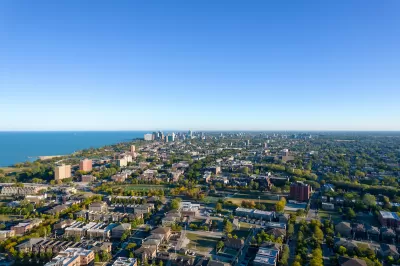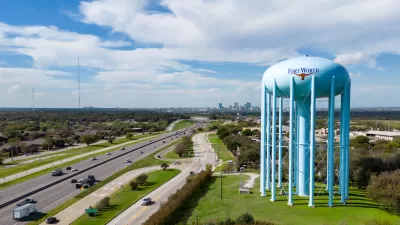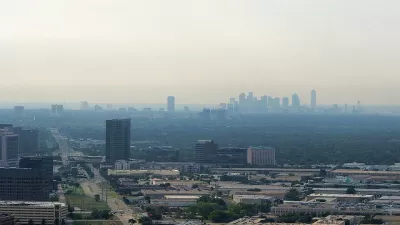The city of Chicago has agreed to take significant steps to remediate decades of discriminatory zoning and land use policies.

A May 2023 settlement with the U.S. Department of Housing and Urban Development (HUD) and three South Side environmental justice organizations (Southeast Environmental Task Force, the South East Side Coalition to Ban Petcoke, and People for Community Recovery) will require the city of Chicago to take significant actions to prevent and reverse decades of discriminatory land use and development practices that placed the burden of pollution on disadvantaged communities.
An article by Gina Ramirez for the National Resources Defense Council refers to the locations and communities in the city subject to the pollution of industrial facilities and other noxious uses as “sacrifice zones.”
According to the Ramirez, the settlement requires the city’s chief sustainability officer and the commissioner of the Chicago Department of Public Health (CDPH) to share the results of a cumulative impact assessment (CIA) with both the mayor and the chair of the city council’s Committee on Environmental Protection and Energy by October 31, 2023. The goal of the report: to begin a public process for the development of a cumulative impacts ordinance, designed to “change business as usual in Chicago and begin to dismantle the structures that created sacrifice zones in the first place.”
Moreover, “The Office of Climate and Environmental Equity (OCEE) and CDPH will lead a team of representatives from across city departments to address environmental impacts and develop an Environmental Justice Action Plan by Sept. 1, 2023, to address cumulative impacts and change internal policies for better protection.”
Also, “The settlement includes a commitment from the Department of Planning and Development (DPD) to submit a plan that will propose updating zoning regulations, such as the alteration or elimination of permitted-by-right or special use status for manufacturing, recycling, waste-related, and other intensive industrial land uses in commercial, manufacturing, and planned manufacturing zoning districts.”
There are more actions required of the city, including steps to improve date transparency and partnerships, as well as adding new public information resources for the city’s Industrial Corridor Modernization Initiative, Chicago Sustainable Development Policy, and the Chicago Plan Commission, along with other land use initiatives.
More info on the settlement is available in a May 12, 2023 press release from HUD. One of the community groups that helped achieve the settlement, People for Community Recovery, has since been threatened with eviction from its longtime home at Chicago Housing Authority’s Altgeld Gardens in Riverdale.
FULL STORY: Chicago’s Historic Environmental Justice HUD Settlement

Alabama: Trump Terminates Settlements for Black Communities Harmed By Raw Sewage
Trump deemed the landmark civil rights agreement “illegal DEI and environmental justice policy.”

Study: Maui’s Plan to Convert Vacation Rentals to Long-Term Housing Could Cause Nearly $1 Billion Economic Loss
The plan would reduce visitor accommodation by 25% resulting in 1,900 jobs lost.

Why Should We Subsidize Public Transportation?
Many public transit agencies face financial stress due to rising costs, declining fare revenue, and declining subsidies. Transit advocates must provide a strong business case for increasing public transit funding.

Paris Bike Boom Leads to Steep Drop in Air Pollution
The French city’s air quality has improved dramatically in the past 20 years, coinciding with a growth in cycling.

Why Housing Costs More to Build in California Than in Texas
Hard costs like labor and materials combined with ‘soft’ costs such as permitting make building in the San Francisco Bay Area almost three times as costly as in Texas cities.

San Diego County Sees a Rise in Urban Coyotes
San Diego County experiences a rise in urban coyotes, as sightings become prevalent throughout its urban neighbourhoods and surrounding areas.
Urban Design for Planners 1: Software Tools
This six-course series explores essential urban design concepts using open source software and equips planners with the tools they need to participate fully in the urban design process.
Planning for Universal Design
Learn the tools for implementing Universal Design in planning regulations.
Smith Gee Studio
Alamo Area Metropolitan Planning Organization
City of Santa Clarita
Institute for Housing and Urban Development Studies (IHS)
City of Grandview
Harvard GSD Executive Education
Toledo-Lucas County Plan Commissions
Salt Lake City
NYU Wagner Graduate School of Public Service





























